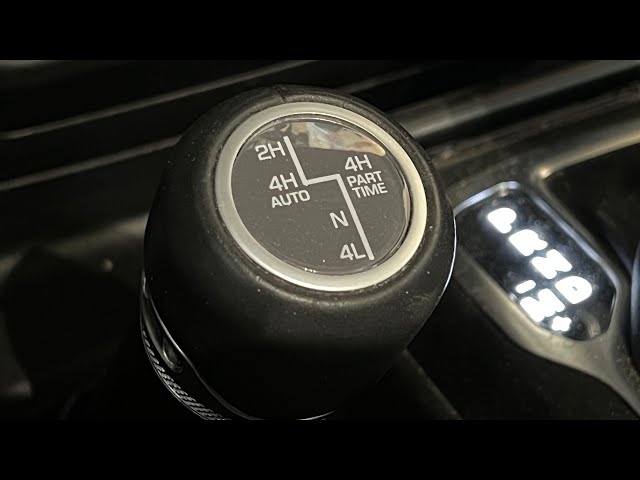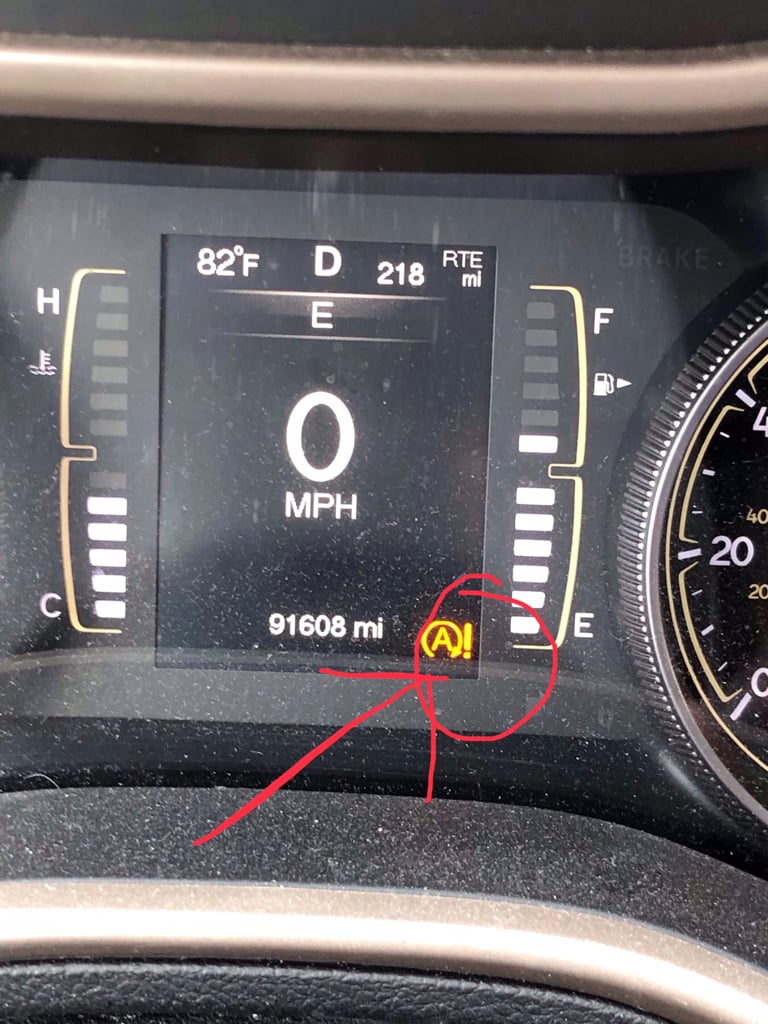As an Amazon Associate, I earn from qualifying purchases
Is your Jeep fan running louder than usual? This can be alarming.
Often, a loud fan noise points to an underlying issue. Understanding why your Jeep fan is so loud is crucial for maintaining your vehicle. It could be a simple fix or a sign of a more serious problem. The fan in your Jeep plays a vital role in keeping the engine cool.
If it’s making a racket, it’s not just annoying—it’s a call for attention. Let’s explore common reasons behind this noise. From overheating to faulty parts, several factors could be at play. Knowing these can help you diagnose and address the issue promptly. This ensures your Jeep runs smoothly and quietly, as it should.
Common Reasons For Loud Jeep Fan
Is your Jeep’s fan making a lot of noise? It’s a common issue. There are several reasons why the fan in your Jeep might be loud. Understanding these reasons can help you fix the problem. Let’s dive into some common causes.
Overheating Engine
An overheating engine can cause the fan to run loudly. When the engine gets too hot, the fan works harder to cool it down. This extra effort makes more noise. High temperatures can damage your engine, so this issue needs immediate attention.
Faulty Thermostat
A faulty thermostat can also cause the fan to run loudly. The thermostat controls the engine’s temperature. If it is not working correctly, it may not open at the right time. This can cause the engine to overheat, making the fan run more often and louder.
Low Coolant Levels
Low coolant levels can lead to a loud fan. Coolant helps keep the engine temperature steady. If there’s not enough coolant, the engine can overheat. This forces the fan to work harder, creating more noise. Check your coolant levels regularly to avoid this issue.

Credit: www.youtube.com
Inspecting The Cooling System
Experiencing a loud fan noise from your Jeep can be troubling. One common cause is issues within the cooling system. By inspecting the cooling system, you can identify potential problems and prevent further damage. Below are key areas to check to ensure your cooling system is functioning properly.
Checking Coolant Levels
The coolant levels play a crucial role in your Jeep’s cooling system. Low coolant can cause the fan to work harder, creating noise. To check:
- Wait for the engine to cool completely.
- Locate the coolant reservoir under the hood.
- Ensure the coolant level is between the “Full” and “Low” marks.
- If it’s low, add the appropriate coolant mixture.
Consistently low coolant levels could indicate a leak. Address leaks promptly to avoid engine damage.
Inspecting Radiator
The radiator is vital for cooling your engine. A clogged or damaged radiator can make the fan noisy. To inspect:
- Ensure the engine is cool before starting.
- Check the radiator for debris, dirt, or leaves.
- Inspect for visible damage, such as bent fins.
- If necessary, use a soft brush to clean the fins gently.
If the radiator is damaged, consider getting it repaired or replaced for optimal performance.
Examining Hoses
The hoses in the cooling system transport coolant between the radiator and the engine. Faulty hoses can contribute to fan noise. To examine:
- Look for cracks, bulges, or leaks on the hoses.
- Ensure all connections are secure and tight.
- Feel for soft spots that indicate weakness.
Replace any damaged hoses immediately to maintain the cooling system’s efficiency.
By regularly inspecting the cooling system, you can keep your Jeep running smoothly and quietly.
Thermostat Issues
Is your Jeep’s fan making a loud noise? It might be due to thermostat issues. The thermostat is a small but crucial part of your vehicle’s cooling system. When it fails, it can cause the fan to work harder and become noisy. Let’s explore how to identify and fix this problem.
Identifying A Faulty Thermostat
A faulty thermostat can cause your Jeep’s fan to run loudly. Here are some signs to look for:
- Engine overheating
- Coolant leaks
- Temperature gauge fluctuations
If you notice these signs, your thermostat might be the culprit. You can check it using a few simple steps:
- Locate the thermostat housing.
- Remove the thermostat.
- Place it in boiling water.
If it doesn’t open, it’s faulty and needs replacement.
Replacing The Thermostat
Replacing the thermostat can solve the loud fan issue. Follow these steps:
- Drain some coolant to prevent spills.
- Remove the thermostat housing bolts.
- Take out the old thermostat.
- Install the new thermostat.
- Reattach the housing and bolts.
- Refill the coolant.
Make sure to check for leaks after replacing the thermostat. This ensures the system is sealed properly.
By addressing thermostat issues, you can reduce the noise from your Jeep’s fan and keep your engine running smoothly.

Credit: www.reddit.com
Fan Clutch Problems
Fan clutch problems can make your Jeep’s fan run loudly. The fan clutch regulates the cooling fan’s speed. If it fails, the fan may run at full speed all the time. This can be noisy and annoying. Let’s explore the signs of a bad fan clutch and how to replace it.
Symptoms Of A Bad Fan Clutch
A bad fan clutch can cause several symptoms. First, you might hear a loud fan noise. This noise can get louder as you accelerate. Second, your Jeep may overheat. The fan clutch might not engage properly. This reduces cooling and increases engine temperature. Third, you may notice poor engine performance. A bad clutch can drag on the engine, reducing power and fuel efficiency. Lastly, check for leaks. A leaking fan clutch can lead to failure.
Replacing The Fan Clutch
If you suspect a bad fan clutch, replacing it can solve the problem. First, gather your tools. You will need wrenches, a screwdriver, and a new fan clutch. Next, disconnect the battery. This prevents any electrical mishaps. Then, locate the fan clutch. It is usually attached to the water pump. Carefully remove the fan shroud to access the clutch. Unscrew the fan clutch bolts and remove the old clutch. Attach the new fan clutch and tighten the bolts securely. Finally, reconnect the battery and test the fan. The noise should be gone, and your Jeep should run smoothly.
Electrical Issues
Electrical issues can cause your Jeep’s fan to run loudly. Diagnosing these problems requires checking key electrical components. Here are the steps to inspect and fix potential electrical issues.
Checking Fan Relay
The fan relay controls the power to the fan. A faulty relay may cause the fan to run loudly or continuously. To check the relay:
- Locate the relay in the fuse box.
- Refer to your Jeep’s manual for the exact location.
- Swap the relay with a similar one from the fuse box.
- If the noise persists, the relay is likely not the issue.
Inspecting Wiring Connections
Wiring issues can also cause the fan to run loudly. Inspect the wiring connections for signs of damage:
- Check for loose or corroded connectors.
- Look for frayed or broken wires.
- Use a multimeter to test for continuity.
- Repair or replace any damaged wiring.
Addressing these electrical issues can help resolve the loud fan noise in your Jeep. Regular maintenance and careful inspections are essential. Keep your Jeep running smoothly and quietly.
Radiator Fan Replacement
A loud Jeep fan could mean it’s time for a radiator fan replacement. Overheating engines often cause noisy fans. Fixing this ensures smoother rides.
Is your Jeep’s fan running too loudly? You might need a radiator fan replacement. A noisy fan can be annoying. It can also signal a bigger issue. Replacing the fan could help fix this. Below, you will find a simple guide on how to replace your radiator fan.
Choosing The Right Fan
Selecting the correct fan is crucial. Not all fans fit every Jeep model. Check your Jeep’s manual. It will tell you the right size and type. You can also ask an expert at an auto parts store. Make sure the new fan matches the old one. This ensures it will work properly.
Step-by-step Replacement Guide
1. Gather Your Tools: You will need a wrench, screwdriver, and gloves. Safety first. 2. Disconnect the Battery: This prevents any electrical issues. Always disconnect the negative terminal. 3. Remove the Old Fan: Locate the fan. Unscrew the bolts holding it. Carefully take it out. 4. Install the New Fan: Place the new fan where the old one was. Secure it with the bolts. 5. Reconnect the Battery: Attach the battery terminal again. Make sure it is tight. 6. Test the Fan: Start your Jeep. Listen for the new fan. It should run quietly. Replacing your radiator fan can solve the loud noise issue. With the right fan and tools, you can do it yourself. Always follow safety guidelines. If unsure, seek professional help. “`
Preventive Maintenance Tips
Keeping your Jeep’s fan running smoothly can prevent loud noises and potential damage. Regular maintenance is key. Here are some simple tips to keep your Jeep’s fan in top shape.
Regular Coolant Flush
Coolant helps keep your engine at the right temperature. Over time, it can get dirty. This affects performance. A regular coolant flush removes old coolant and debris. This keeps the fan from working too hard.
- Check coolant levels every month.
- Flush coolant every 30,000 miles or as advised.
- Use the correct type of coolant for your Jeep.
Routine System Checks
Regular checks of your cooling system can prevent problems. This includes checking the radiator, hoses, and fan. A simple inspection can reveal issues early. This prevents loud fan noises and keeps your Jeep running well.
| Component | Inspection Frequency | What to Look For |
|---|---|---|
| Radiator | Monthly | Leaks, corrosion, debris |
| Hoses | Monthly | Cracks, leaks, loose connections |
| Fan | Monthly | Unusual noises, smooth rotation |
Regular maintenance ensures your Jeep’s fan runs quietly and efficiently. This helps you avoid unexpected issues and keeps your vehicle in great shape.
When To Seek Professional Help
When the fan in your Jeep runs loudly, it can be worrisome. Sometimes, the issue may be easy to fix. Yet, other times, it might be complicated. Knowing when to seek professional help can save you time and money.
Identifying Complex Issues
Some issues with a loud fan are hard to identify. If you hear grinding, rattling, or screeching, it might be serious. A professional can diagnose these sounds better than a DIY attempt. Complex electrical problems can also cause a loud fan. These need a skilled mechanic to fix them safely.
Overheating is another sign of a bigger problem. If your Jeep overheats often, the fan might not be the only issue. A professional can check the engine and cooling system for deeper issues. If you notice smoke or a burning smell, seek help immediately.
Finding A Reliable Mechanic
Finding a good mechanic is crucial. Start by asking friends or family for recommendations. Check online reviews to see what others say about their experiences. Look for mechanics who specialize in Jeeps. They will have the knowledge needed to fix your fan issue.
Visit the shop before making a decision. Ask questions about their experience with similar issues. A good mechanic will be honest and clear about costs and repairs. Having a reliable mechanic can give you peace of mind. It ensures your Jeep stays in good shape for years to come.

Credit: www.reddit.com
Frequently Asked Questions
Why Is My Jeep Fan So Noisy?
Your Jeep fan might be noisy due to debris or worn-out parts. Ensure it’s cleaned regularly and check for any damaged components.
How Can I Fix A Loud Jeep Fan?
To fix a loud Jeep fan, inspect for debris or damage. Clean the fan and replace any faulty parts.
Is A Loud Jeep Fan Normal?
A loud Jeep fan isn’t normal. It often signals an issue, such as debris, wear, or mechanical problems.
Can A Loud Fan Affect My Jeep’s Performance?
Yes, a loud fan can affect your Jeep’s performance. It may lead to overheating and reduced efficiency.
Conclusion
A loud Jeep fan can be concerning. It often signals an issue. Check the cooling system. Clean or replace the air filter. Ensure proper coolant levels. Inspect the fan for damage. Addressing these steps can help. Regular maintenance is key.
Keep your Jeep running smoothly. Avoid costly repairs down the line. Always consult a professional if unsure. Your Jeep’s health matters. Happy driving!
As an Amazon Associate, I earn from qualifying purchases


